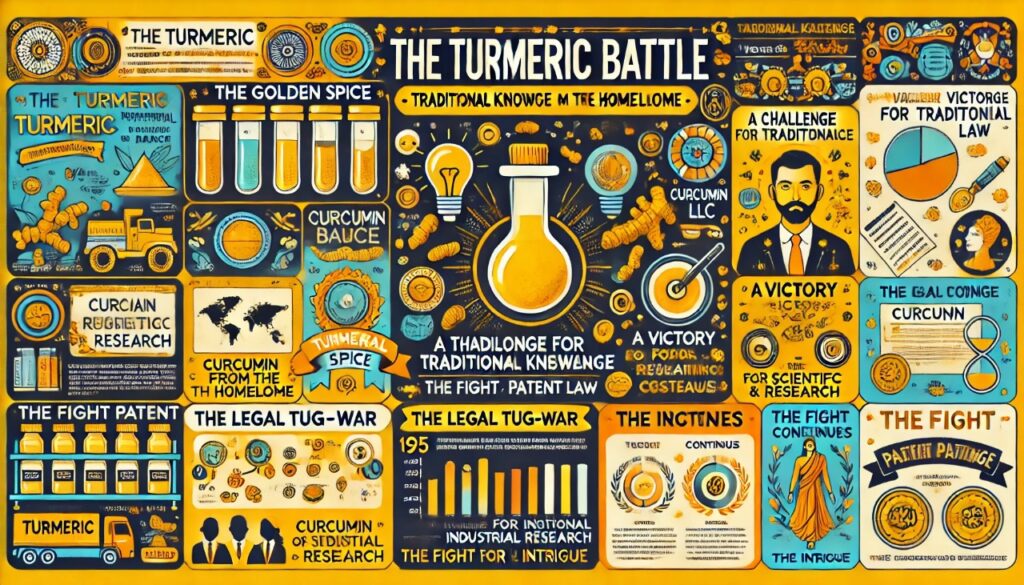The Turmeric Battle:
Traditional Knowledge vs. Patent Law

The Golden Spice: Turmeric, a vibrant yellow spice indigenous to India, has been a cornerstone of Ayurvedic medicine for centuries. Its active compound, curcumin, is celebrated for its numerous potential health benefits. In 1995, recognizing the medicinal promise of curcumin, a US-based company, Curcumin Research, filed a patent for a process to isolate and purify this compound.
A Challenge from the Homeland: The Indian Council of Scientific & Industrial Research (CSIR), representing the Government of India, swiftly contested this patent. Their argument was straightforward: the process for isolating curcumin was not new. It had been known and practiced in India for generations, with documentation in ancient Ayurvedic texts. Granting the patent would effectively allow Curcumin Research to claim ownership over a practice deeply embedded in India’s traditional knowledge.
The Legal Tug-of-War: The ensuing legal battle turned into a landmark case, raising critical questions about the patenting of traditional knowledge. India contended that the US Patent Office had not adequately considered the prior existence of this knowledge within India. After years of legal arguments, the US Patent Office eventually revoked Curcumin Research’s patent in 1997, marking a significant victory for India.
A Victory for Traditional Knowledge: The turmeric case set an important precedent in the realm of intellectual property law. It underscored the need to recognize and respect traditional knowledge when evaluating patents. Moreover, it highlighted the challenges faced by developing countries in protecting their cultural heritage from exploitation by foreign entities.
The Fight Continues: The turmeric case is just one example in the ongoing struggle to protect traditional knowledge. India, along with other developing nations, continues to work on developing mechanisms to document and safeguard their traditional knowledge systems. These efforts are crucial in ensuring that this knowledge is preserved for future generations and not unjustly exploited for commercial gain.
The Intrigue: This case stands out for several reasons:
- David vs. Goliath: A developing nation successfully challenging a powerful corporation.
- Clash of Systems: The conflict between modern patent law and ancient traditional knowledge.
- Global Impact: Establishing a precedent for the protection of traditional knowledge.
The Takeaway: The turmeric battle serves as a powerful reminder of the complex interplay between innovation, intellectual property, and cultural heritage. It continues to resonate as the world strives to find a balance between protecting intellectual property and preserving traditional knowledge.
